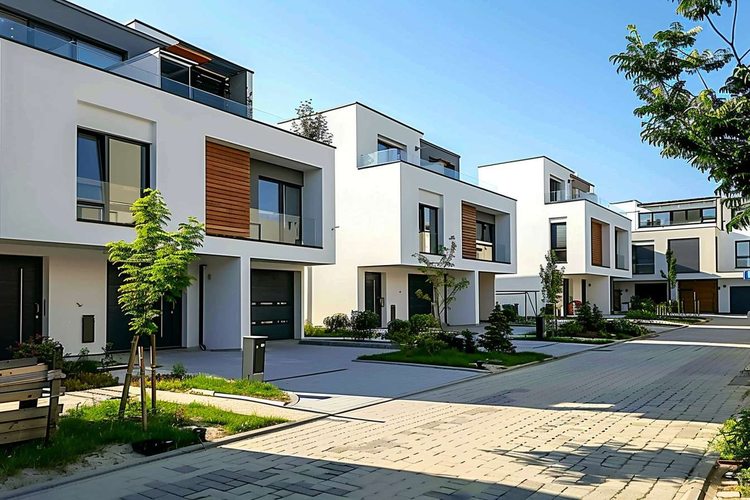Unsold Houses: Opportunities and Challenges in the Real Estate Market
The real estate market is dynamic, with properties constantly changing hands. However, not all houses find immediate buyers, leading to a category known as "unsold houses." These properties present both opportunities and challenges for various stakeholders in the real estate industry. Understanding the factors behind unsold houses and their impact on the market is crucial for potential buyers, sellers, and investors alike.

-
Location: Houses in less desirable areas or with poor accessibility may face difficulties in selling.
-
Market conditions: Economic downturns or oversupply in certain areas can lead to a surplus of unsold houses.
-
Property condition: Houses requiring significant repairs or renovations may deter potential buyers.
-
Changing buyer preferences: Shifts in lifestyle trends or housing needs can affect demand for certain types of properties.
How do unsold houses affect the real estate market?
The presence of unsold houses can have various impacts on the real estate market:
-
Price adjustments: Sellers may need to lower their asking prices to attract buyers, potentially affecting overall market values.
-
Extended marketing periods: Properties may remain listed for longer, increasing carrying costs for sellers and potentially leading to price reductions.
-
Opportunity for buyers: Patient buyers may find good deals on unsold houses, especially if sellers become more motivated over time.
-
Market sentiment: A high number of unsold houses can create a perception of a weak market, potentially affecting buyer confidence.
-
Impact on new construction: Developers may adjust their plans or slow down new projects in areas with many unsold houses.
What strategies can sellers use to deal with unsold houses?
Sellers facing challenges with unsold properties have several options to consider:
-
Price reassessment: Conducting a new market analysis and adjusting the price accordingly can attract more potential buyers.
-
Property improvements: Making strategic renovations or upgrades can increase the appeal of the house to potential buyers.
-
Enhanced marketing: Utilizing professional photography, virtual tours, and targeted online advertising can improve visibility.
-
Staging: Professional home staging can help potential buyers visualize themselves living in the space.
-
Flexibility in terms: Offering seller financing or rent-to-own options may attract buyers who struggle with traditional financing.
Are there opportunities for investors in unsold houses?
Unsold houses can present interesting opportunities for real estate investors:
-
Negotiation power: Longer listing periods may make sellers more willing to negotiate on price.
-
Value-add potential: Properties needing improvements offer opportunities for investors to increase value through renovations.
-
Rental income: Investors may choose to rent out unsold houses, generating income while waiting for market conditions to improve.
-
Bulk purchases: In areas with many unsold houses, investors might negotiate deals to purchase multiple properties at discounted rates.
-
Flipping opportunities: Skilled investors may be able to purchase, renovate, and resell unsold houses for a profit.
How can buyers navigate the market of unsold houses?
For potential homebuyers, unsold houses can offer advantages:
-
Less competition: Properties that have been on the market for a while may have fewer competing offers.
-
Negotiation opportunities: Sellers of unsold houses may be more open to price negotiations or other concessions.
-
Time for due diligence: With less pressure to make quick decisions, buyers can thoroughly inspect and research properties.
-
Potential for customization: Some sellers may be willing to make changes or improvements to close the deal.
-
Understanding market trends: Researching unsold houses can provide insights into local market conditions and pricing trends.
What are the long-term implications of unsold houses?
The impact of unsold houses extends beyond immediate market conditions:
-
Community effects: Neighborhoods with many unsold houses may face challenges in maintaining property values and community cohesion.
-
Economic indicators: The rate of unsold houses can serve as an indicator of broader economic trends and consumer confidence.
-
Policy considerations: High levels of unsold houses may lead to policy interventions aimed at stimulating the housing market.
-
Rental market dynamics: An increase in unsold houses converted to rentals can affect the balance of the local rental market.
-
Future development patterns: Persistent issues with unsold houses may influence urban planning and development strategies in affected areas.
In conclusion, unsold houses represent a complex aspect of the real estate market, presenting both challenges and opportunities. For sellers, they necessitate strategic thinking and adaptability. Buyers and investors may find attractive options among these properties, but careful due diligence is essential. Understanding the factors contributing to unsold houses and their broader impact on the market is crucial for all stakeholders in the real estate industry. As market conditions evolve, so too will the strategies for addressing and leveraging unsold houses in the property landscape.






